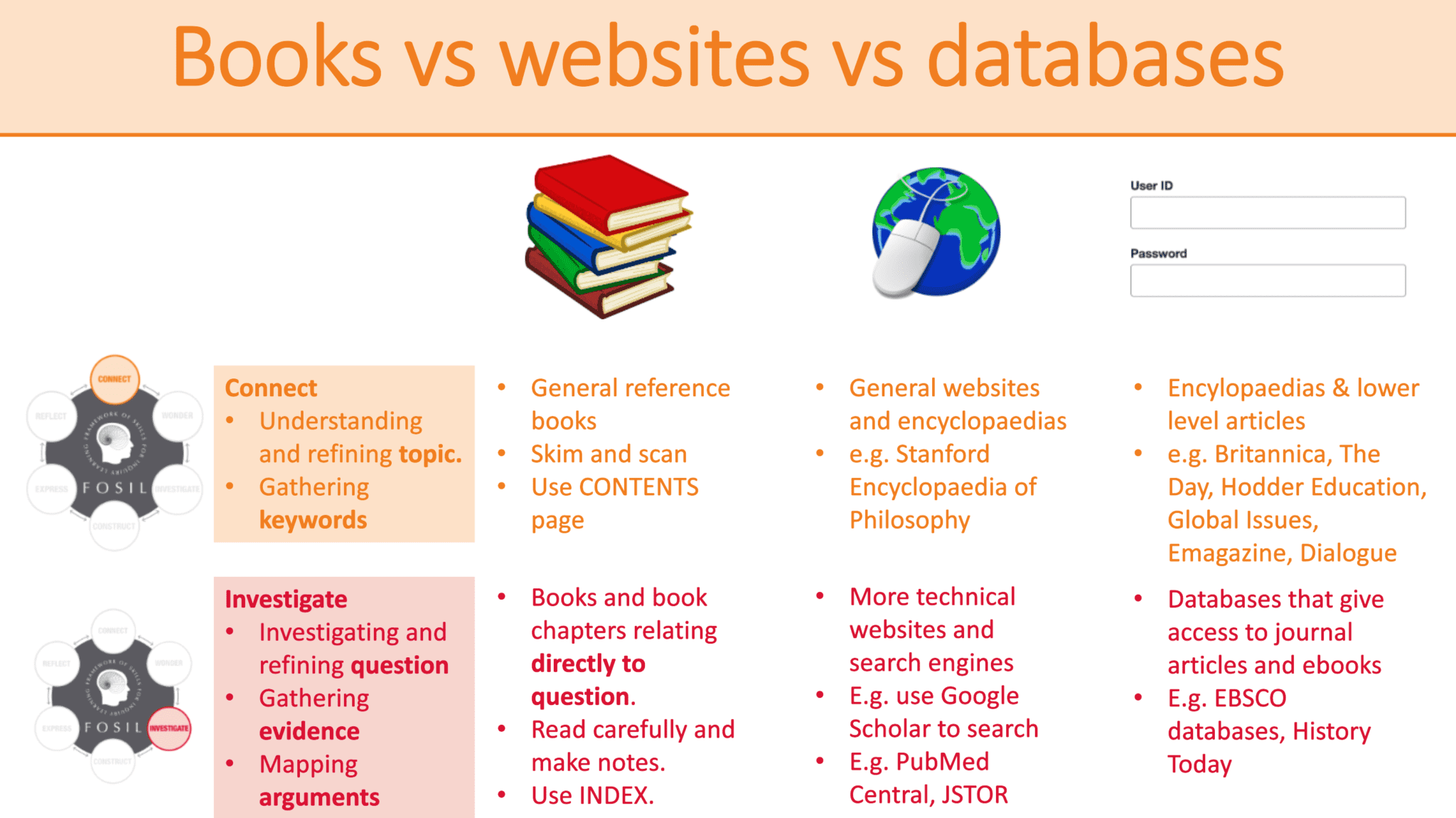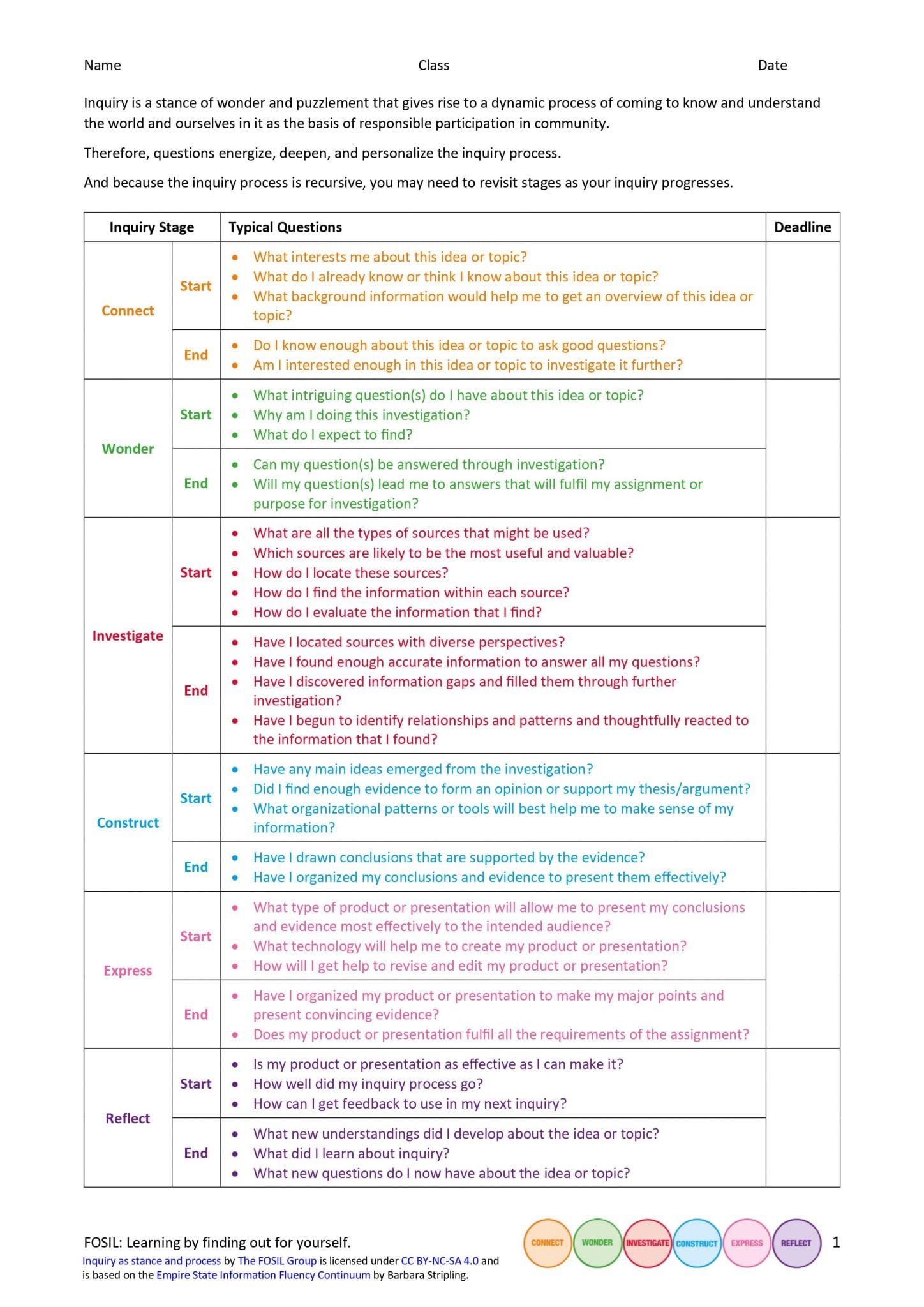Reply To: Guided Inquiry Design and FOSIL
Home › Forums › The nature of inquiry and information literacy › Guided Inquiry Design and FOSIL › Reply To: Guided Inquiry Design and FOSIL
Hi Lee. It’s a great question, coming as it does from your years of experience of inquiry. It took me a while when I first started with FOSIL to really understand and appreciate the power of the Connect stage. Largely I think because I did not engage as fully as I should have done with the skills and skill sets at the start of my journey with FOSIL, and so did not really appreciate that Connect encompasses the background reading and research that allows that move from general to specific resources and from relevant to pertinent information. Darryl has gone into this in some detail above so I don’t need to revisit it, however I did just want to share some of my journey with the Extended Project Qualification taught course that has a bearing on this. The EPQ is an inquiry-based school leaving qualification equivalent to half an A-level, taken by students in their last two years of school (aged 17-18). It is a 120 hour inquiry project (30 hour taught course plus 90 independent hours) on any topic of the students’ choice. The outcome is either a 5,000 word research report or an artefact accompanied by a research report of at least 1,000 words. More info here. So it is a substantial piece of work.
I think the confusion with Connect comes with much simpler projects with younger students, where the early stages can be a little more truncated if there are time constraints. Where everyone is largely pursuing the same topic from a range of different angles it is possible to connect with a topic through group discussion around simple stimulus resources, gathering keywords and questions together over a relatively short period. For more complex work with older students this is not possible and it is important to give the time and support they need to move from the general to the specific.
There is huge flexibility in the EPQ taught course – although there is guidance, the only firm stipulation is that it should be around thirty hours. In my EPQ taught course we spend six of the thirty teaching hours early in the course working on Connect. You can see my new medium term plan (scheme of work) for this year in this post. The plan both explains what is taught when, and lists the skills being taught and practised at each stage. As you know from your experience with Guided Inquiry, it is so important not to stint on this stage, particularly when students have a great deal of choice and freedom in their topic. Our students sign up for the EPQ in mid October and do not put in their research proposal, with a working question and a few initial resources, until mid January – so Connect and Wonder together last about three months (of a one year course).
Something I have done very intentionally this year, because I felt I was not clear enough last year (in my first year of teaching the EPQ), is to talk explictly with students about the different ways they will use resources in Connect and Investigate, and to introduce them to different types of source at these different stages. This is a slide from one of my lessons early on:

I’m sure this will be very familiar to you and that you did a similar thing in Guided Inquiry, but I just wanted to show that this very much has a place in FOSIL. I am also sure that I could do this better, and appreciate any suggestions!
I have noticed that the extra direction in my lessons at the two different stages has increased my students’ confidence with using resources this year and that they are making a much smoother transition from relevant to pertinent sources.
Finally, I would agree with Darryl that reflection is embedded at all stages of the FOSIL cycle (the resource ‘Inquiry as stance and process‘ from our Resources bank makes that very clear. See image below.). However it is particularly important at the end of an inquiry to spend time looking back holistically at everything you have done (product and process), what you have learnt, where that might take you next and how you will do even better next time. The Reflect stage captures this and (although it is often neglected) is very important and can be very powerful.



